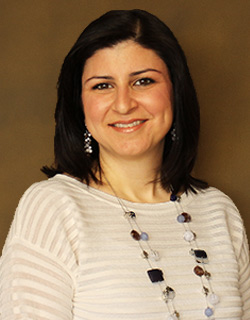Sleep Like a Baby
March 1, 2023
Folks looking to lead a healthier lifestyle are likely to focus first on diet and exercise, but the overlooked “middle child” in the journey to healthy living is sleep.
Sleep is incredibly restorative and helps improve physical, mental, and emotional health. Experiencing disrupted sleep can elevate blood pressure and stress levels, slow metabolism processes, affect insulin levels and the body’s response to it, as well as impair mood, lead to excessive daytime sleepiness, or cause anger and irritability.
Trouble falling asleep or staying asleep is a common problem and often exacerbated by lifestyle changes and stress. Behavior modifications to practice good sleep hygiene like establishing a manageable bedtime routine; avoiding alcohol, exercise, and caffeine close to bedtime; and keeping screens out of the bedroom are all helpful practices. But they may not be enough to conquer sleep, which could be indicative of a larger issue.
Further problems can arise when people try alternative solutions on the market, rather than consult a physician first. Some of these interventions do not address the root of the problem. Relying on band-aid solutions rather than diving deeper into the larger message the body is trying to send may end up in frustration and, ultimately, continued sleepless nights.
Raya Wehbeh, MD, Medical Director of Sleep Medicine at GBMC, offered her professional opinion about some of the trendy solutions to achieving better sleep:
Melatonin
Melatonin is a natural hormone secreted in the body to regulate the brain’s circadian clock. It is usually secreted at night and inhibited in the morning by natural sunlight.
According to Dr. Wehbeh, melatonin can assist in regulating sleep for people with disorders such as circadian rhythm disorder or REM sleep behavior disorder. However, for a diagnosis like insomnia or for patients who have tried the sleep hygiene strategies above, it is often not her first course of action.
“While it has some sedative properties, melatonin can work best as a supplement for people who have a delayed sleep phase, meaning their sleep schedules have shifted to be later at night, and melatonin works to correct that shift. It has to be administered at a certain hour in relation to the individual’s current sleep schedule, and if it is administered at the wrong time, it can have the opposite effect, which is why I think it should be used in consultation with a physician,” Dr. Wehbeh said.
“In my opinion, it’s not often used the way it’s supposed to be by the general public. If someone feels like it’s working for them, I won’t challenge them, but it’s not something I normally recommend as a first-line treatment.”
Learning your chronotype
Chronotype is a body’s natural tendency to want to be asleep or awake at a certain time of day, what people might casually refer to as “night owls” or “early larks.” According to Dr. Wehbeh, even when you know your chronotype, unless you have the flexibility to arrange your life around when your body wants to be awake, you will need to make adjustments to get good sleep.
“The good thing is, your chronotype is not the only thing that controls when you go to bed or wake up,” Dr. Wehbeh said. “The other strong factor is the circadian clock, which is the biological clock in our brain that is controlled more by outside factors like light, activity, exercising, and other daily habits—these tend to tell the clock when to send signals to be awake and to be asleep.”
If given the opportunity, your body will likely return to its natural rhythm. For example, a night owl with a 9-to-5 job that means they have to be up in the morning might, upon retirement, revert to their night owl schedule. Knowing your chronotype might be helpful in guiding decision making and as a general awareness of your body’s natural rhythm to achieve better sleep/wake schedules, but it's not likely to be a solution to sleep challenges.
Smart watches
Some watches and other devices used to track sleep have been compared to formal sleep studies, but, according to Dr. Wehbeh, most do a better job of identifying wakefulness from sleep rather than particular sleep stages.
“I like people to go more by how they are feeling rather than by what the watch is telling them and then worrying about it,” Dr. Wehbeh said. “We can use watches as a guide, not a diagnostic tool.”
If a patient is referred to the Sleep Center at GBMC, Dr. Wehbeh and her team aim to get a full picture of a patient’s medical history and sleep experience to treat the root cause of the problem. Patients might be asked to keep a sleep diary, which can be used in conjunction with devices, to get a full view of the sleep experience.
Sleeping pills
Sleeping pills can be used as a short-term treatment for insomnia in certain situations, especially if there is no underlying sleep disorder; however, they should always be used with caution and under the guidance of a physician. They can have side effects, their effectiveness may wane over time, or you can become overly dependent on them for sleep.
Treatments such as cognitive behavioral therapy for insomnia (CBTI), in conjunction with adopting healthy sleep habits, have been shown to be much more effective long term compared to sleeping pills. CBTI walks patients through habits and thoughts that might have fed into insomnia over time.
Good sleep is important. Whether it is a mild annoyance or a persistent problem, reach out to a professional if you are experiencing sleep problems.
“It comes down to prioritizing sleep,” Dr. Wehbeh said. “People focus on diet and exercise, and sleep should be one of the things they focus on as well. If you have trouble falling asleep or staying asleep, and the problem has persisted for more than three months, it could be a sleep disorder, and it’s possible we can make you feel better. It’s recommended you see a doctor, especially when it gets to the point where it’s affecting your quality of life.”




